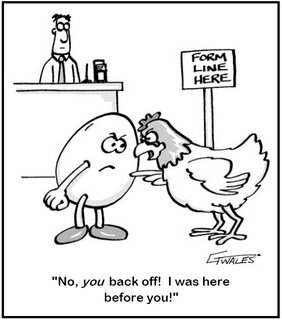When I was a kid, it used to really annoy me when I couldn’t spell something and my teacher would tell me to look it up in the dictionary. If I knew how to find it in the dictionary, I wouldn’t need to look it up! I’ll be honest – to this day, I’m still not a big fan of the system (thank goodness for spell check!), but I guess it makes a little bit more sense now than it did when I was eight. And, if you think about it, the relationship between exercise and energy works the same way: Exercise gives you energy, but you need energy to exercise.
But how are you supposed to get the energy to exercise if you need to exercise first to get energy?!
Before tackling that conundrum, let’s review two studies that prove this whole premise is even true:
A little bit of exercise and energy research
Hoping to clarify research design issues that weakened earlier studies, researchers from the University of Georgia conducted a meta-analytic review of exercise and fatigue literature, including 70 studies and 6,807 subjects. The review concluded:
The cumulative evidence shows that chronic exercise programs are associated with an increase in feelings of energy and a decrease in feelings of fatigue that are large enough to be clinically important.
In addition to suggesting some interesting relationships between exercise, mood and cortical brain activity (which we’ll definitely get into with another post!), this study, as the researchers describe it,
…is [to our knowledge] the first experimental report indicating that acute exercise improves transient feelings of energy and fatigue in people who report persistent fatigue.
The results, showing increases in feelings of vigor and decreases in feelings of fatigue after low or moderate intensity exercise sessions, parallel an earlier study completed by the researchers in 2008 (Puetz, Flowers & O’Conner).
Back to our conundrum…
So, it looks like we have good news and bad news. The good news is: exercise really does give you energy (and it’s not just some lie your personal trainer made up to get you through those last ten reps). The bad news is: we still need to figure out a way to get enough energy to start exercising (so we can get more energy!).
During the next few weeks, Prayers and Apples will be posting a series of articles on increasing energy (what to eat, what to do and what to avoid). Until then, the most important thing you can do is get moving. Do something, anything – every little bit counts. After reviewing these studies, you know exercising will increase your energy. If you just sit on the couch, nothing’s going to happen. But if you go for a fifteen-minute walk, something will.
Think of it as two steps forward, one step back. For every two little steps you take with exercise, you get one little boost of energy. Sure, a fifteen-minute walk isn’t going to get you a killer six-pack or make you lose ten pounds – but it is going to give you ENERGY and… well, if I was eight years old again, I’d sum the whole thing up with this book:
I’d love to hear your thoughts on exercise and energy – and if you have any tricks for getting motivated!
References:
Dishman, R. K., Thom, N. J., Puetz, T. W., O’Connor, P. J., & Clementz, B. A. (2010). Effects of cycling exercise on vigor, fatigue, and electroencephalographic activity among young adults who report persistent fatigue. Psychophysiology, 47(6), 1066-1074. doi:10.1111/j.1469-8986.2010.01014.x
Puetz, T. W., Flowers, S. S., & O’Connor, P. J. (2008). A randomized controlled trial of the effect of aerobic exercise training on feelings of energy and fatigue in sedentary young adults with persistent fatigue. Psychotherapy and Psychosomatics, 77, 167–174.
Puetz, T. W., O’Connor, P. J., & Dishman, R. K. (2006). Effects of chronic exercise on feelings of energy and fatigue: A quantitative synthesis. Psychological Bulletin, 132(6), 866-876. doi:10.1037/0033-2909.132.6.866




Enjoyed the cartoon and I think we all can relate to the exercise/energy dilemma. At least for me I need to hear those case reports to convince my weary bones to get moving.
First, If you Give a Mouse a Cookie is my absolute FAVORITE book from childhood… love the reference! :-)
This is so true — whenever I’m feeling especially exhausted, I always think about how great it would feel to nap instead of go to the gym, however I always feel so much better when I suck it up and get a workout in!
I always feel better after a workout. :) That old statement is true…you never regret a workout! :)
Thanks girly!
I know! I’ve seen so many cute pictures on Pinterest that say: “Man I regret that workout – (Said Nobody EVER)” lol :) I think I might post one on here soon! :)